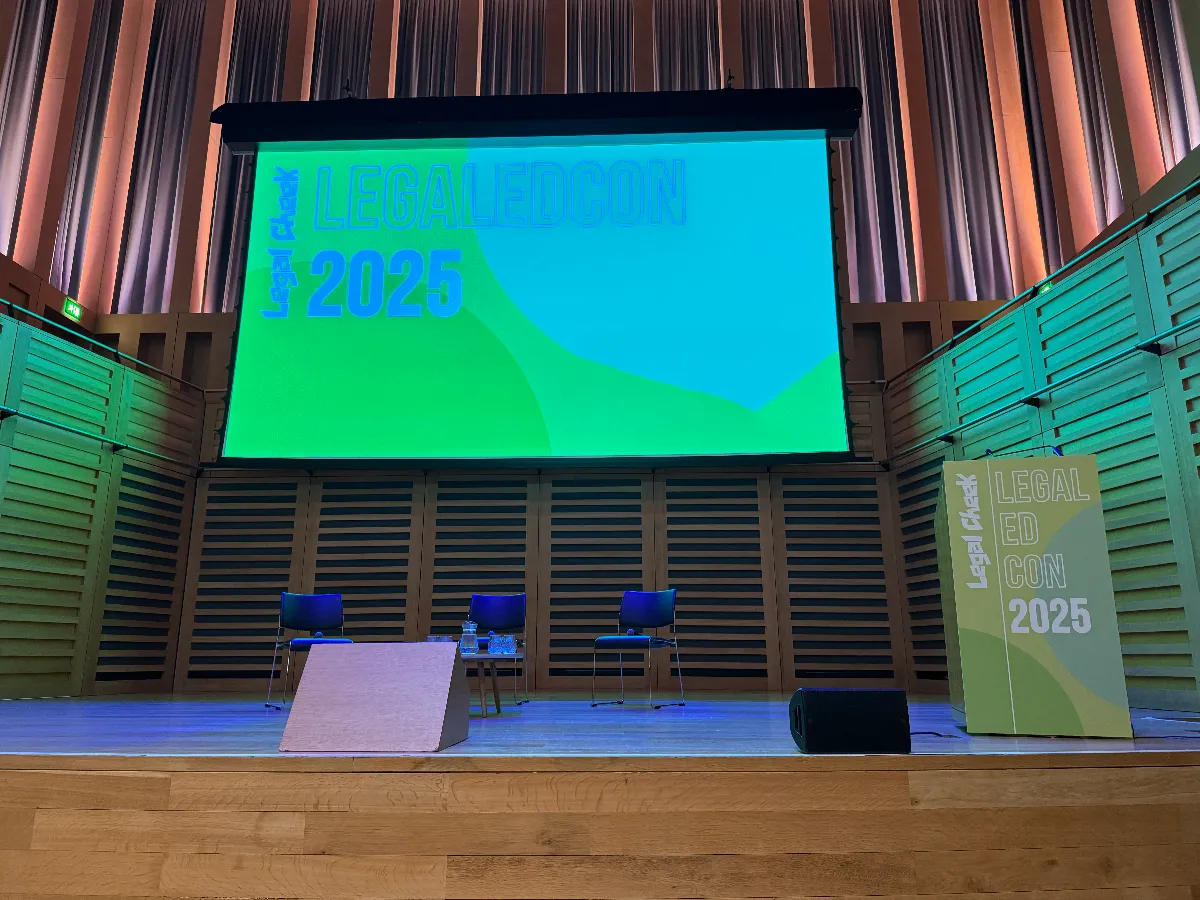Future Solicitor attended the LegalEdCon 2025, which gathered over 100 leading law firms, law schools, and regulators for a packed day of discussion about the future of solicitor training. From SQE realities to Gen Z expectations, the event delivered key insights for anyone preparing for the Solicitors Qualifying Examination (SQE). Here’s what we learned from all six sessions.
1. The SQE Unfiltered
This session brought together major voices from the SRA, training providers, and top law firms to address frustrations and improvements needed for the SQE. Julie Swan from the SRA acknowledged delays in publishing law school performance data due to quality concerns—but reaffirmed that transparency is still the goal by autumn 2025. Concerns were raised about the difficulty and fairness of SQE1, especially for students from underrepresented backgrounds.
2. A Call for an SQE Reset
Professor Thom Brooks closed the day with a powerful keynote comparing the SQE to Brexit—unwanted, unpredictable, and in need of reform. He highlighted serious concerns with pass rates, the growing attainment gap, and lack of clear data. His rallying cry? It’s time for the SRA to listen more closely to students, educators, and employers—and fix what’s not working.
3. Diversity Meets Politics
This session tackled the UK government’s delay on funding decisions for solicitor apprenticeships and the effects of US politics on DEI (diversity, equity, and inclusion) policies. Firms are standing firm on the value of apprenticeships and DEI, even as policies evolve. The message was clear: apprenticeships are here to stay, but candidates must stay informed about changes in funding and firm offerings.
4. Mind the Gap: Tackling Workplace Readiness
Morette Jackson kicked things off with a frank look at the challenges firms face in bridging the gap between law school and the office. Although SQE trainees show strong resilience, firms still report that their drafting, legal research, and client problem-solving skills often fall short compared to LPC-trained peers. A striking 89% of firms said SQE trainees were either less or no more prepared than LPC graduates when it comes to solving client problems.
5. The Psychology of Learning
Alisa Gray, Roy Morgan, and Sue Elabor explored how understanding how the brain learns can improve legal education. The key takeaway? Learning is a process, not a one-off event. Whether you’re studying for SQE1 or SQE2, the ability to retain and apply information depends on methods like repetition, context-based learning, and even well-designed digital tools.
6. Gen Z: Expectations vs Reality
Charlotte Wanendeya chaired a lively panel on the generational shift in legal education and the workplace. Gen Z students want mental health support, flexibility, and purpose in their careers. They’re tech-native but may struggle with face-to-face communication and resilience. Meanwhile, many law firms are adapting their cultures to foster psychological safety and more transparent career paths.
Final Thoughts
From skills gaps to data delays, LegalEdCon 2025 reminded us that the SQE journey is still evolving. For SQE candidates, the message is to stay flexible, focus on deep learning (not just exam prep), and lean into support systems—whether you’re an apprentice, graduate, or career changer.
